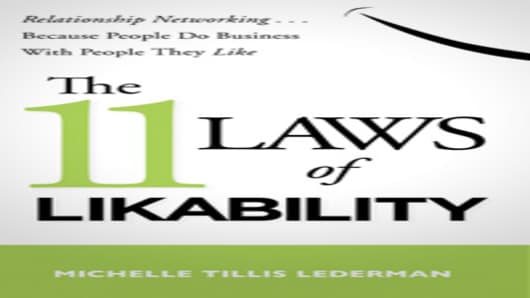In a way, there is nothing wrong with this. It is natural for like-minded people to gravitate to one another, and it can be comfortable and easy to spend your social time at work with the people who are in your circle.
Being part of a group can boost your morale and promote camaraderie; it can lead to increased cooperation, and it can help accomplish broader company-wide tasks across departments. I always counsel that investing in and developing strong relationships with a few key people makes sense, and one of the best ways to do this is to focus on the colleagues with whom you have things in common.
Similarities build connections.
It is crucial, though, to keep expanding your network, and not settle into complacency once you’ve found a group of people with whom you’re comfortable. A clique and a network may be conceptually similar—a band of like-minded people—but they connote very different things. A clique suggests exclusivity; it can keep out instead of invite in. A network is something that continually expands, opening up opportunities and possibilities as it gains strength.
When you surround yourself only with what you know and stick solely to your regular group—your clique—you stop challenging yourself. Growth stagnates and innovation lags. Behaviors and thought patterns become rote. By limiting yourself to your comfortable circle, you’re apt to only get feedback from people who are prone to agree with you, and you can unwittingly consign yourself to a group-think mentality.
Not being part of a clique can be its own quandary. It is important to remember, though, that most cliques are inward looking. If you feel outside the circle, don’t get defensive—your sense of exclusion becomes a self-fulfilling prophecy. Instead, focus on building individual connections with the people whom you are genuinely drawn to.
To break the limiting patterns of cliques and discover new connections, try the following:
1) Assume the best. Cliques form as a means of comfort and security; they may appear exclusionary, but they are not always so. Whether you are inside or outside a clique, don’t listen to your negative inner voice. Assume the best intentions of others, more often not you’ll be right. There are always colleagues looking to increase their connections. Stay open to these opportunities instead of shutting them off.


